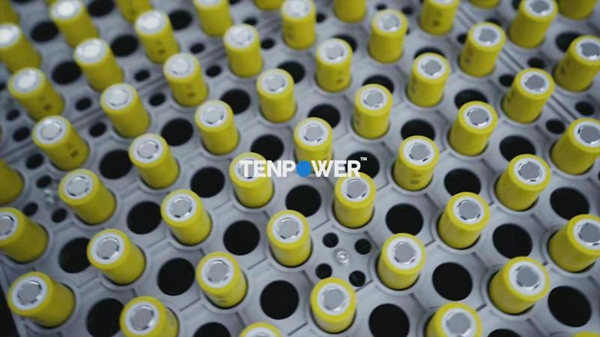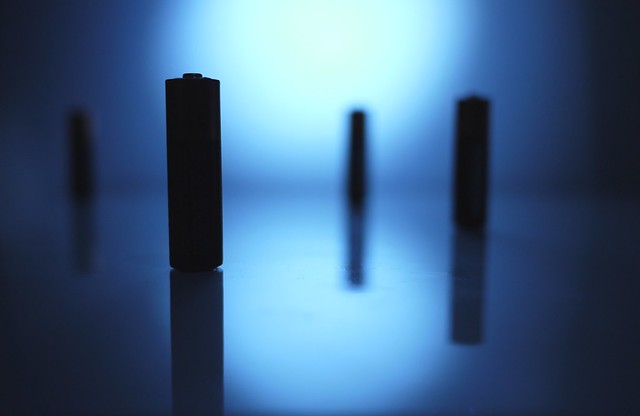Highest Energy Density Lithium Ion Battery –Definition and Importance
APR 03, 2020 Pageview:2249
In this article, we’re gonna be talk about lithium ion batteries having highest energy density. Starting from the definition of the energy density, we’ll talk about the reason why lithium ion batteries have this much high energy density. Finally, we’ll discuss the importance of high energy density for a battery.
What is the energy density of a lithium ion battery?
Energy density of any battery describes the amount of energy it can store per unit mass or volume. Therefore, a battery with higher energy density can supply an electric load for longer than a battery having low energy density but same mass or volume. Often only the extractable or useful energy is measured, which means that chemically inaccessible energy like rest mass energy is not measured or ignored. Energy density is usually expressed in two ways that is volumetric energy density which is expressed in watt-hours per liter (Wh/L), and gravimetric energy density, also called specific energy, that is expressed as watt-hours per kilogram (Wh/kg).
The terms capacity, energy, and power, scientifically they all have different meanings and this is where people get very confused on batteries. When they talk about high-capacity batteries, you don’t really care about the capacity you care about the energy and power. Power is different from energy density as it indicates how much power a battery can deliver on demand whereas energy density describes how much energy a battery can store per unit mass or volume.
An analogy between power and energy densities can be made with a bottle of water. Let the bottle size be energy density and opening denotes the power density. If a bottle is large in size, it can carry a lot of water, while a large opening can pore it quickly. Thus a large bottle with large opening is the best combination. The same is true for batteries –high energy density and high power density makes the best combination in batteries.
High Energy density comes in lithium ion batteries due to the compound works as positive electrode (cathode) that is lithium cobalt oxide. Lithium ion batteries typically have twice energy density that of the standard nickel-cadmium. They have the potential to store a lot of energy which results in higher energy densities. The high energy density is the biggest advantage of lithium-ion batteries that makes it more attractive for portable devices like mobile phones and laptops.
Why do lithium ion batteries have high energy density?
Lithium-ion batteries used in portable applications are mostly cobalt-based. These batteries consist of lithium cobalt oxide (LiCoO2) as cathode material and a graphite carbon as anode material. The cobalt oxide offers high energy density in lithium ion batteries.
Under no conditions If you are forming lithium metal or you should not be forming lithium metal. If you have a lithium metal as your negative electrode, what you can do, is no longer a lithium ion battery, it’s a lithium metal battery.
Lithium ion batteries are generally much lighter compared to other types of rechargeable batteries of the equal size. The electrodes of lithium ion batteries are composed of lightweight carbon and lithium. Lithium is a highly reactive metal, which means that its atomic bonds can store a lot of energy. This is the reason lithium ion batteries have high energy density.
Here is a description to get your eye on the energy density. The most common type of lithium ion battery can store 150 watt-hours of electricity per kilogram of battery. A nickel-metal hydride (NiMH) battery pack can store about 100 watt-hours per in 1 kilogram of battery, even though 60-70 watt-hours might be more common. A lead-acid battery can store 25 watt-hours only in 1 kilogram of battery. Now you can imagine yourself that it takes 6 kilograms to store the equal amount of energy for lead-acid battery that a 1 kilogram lithium-ion battery can handle. That's a big difference.
Lithium ion batteries have completely transformed the way we use power sources for operating various technologies. From cell phones to vehicles and machines, lithium-ion batteries can be an excellent source of energy for the future. These batteries have a highest energy density than most of the other type of batteries, making it one of the most useful and powerful sources of energy that can be used.
How important high energy density for a battery?
With electronic devices such as laptops and mobile phones needing to run longer between charges, but still consuming more power at the same time, a much higher energy density batteries are always needed. In addition to this, electric vehicles also need a battery that is very high in energy density.
A material can store different types of energy and it takes a particular type of reaction to release each type of energy. Particularly there are four types of reactionsspecial, chemical, electrochemical and electrical. Animals use chemical reactions to extract energy from food. Automobiles also use chemical reactions to derive energy from gasoline. Most of the mobile devices such as mobile phones and laptop computers use electrochemical reactions to release the energy from batteries. Thus a battery with high energy density is more useful than a battery having low energy density because a battery with high energy has a longer battery life.
The increasing demand for batteries has made the academics and vendors to focus on improving the energy density, safety, durability, operating temperature, output power, charging time and cost of lithium ion battery technology.
Lithium ion batteries have a higher energy quota as compared to other rechargeable batteries. Thus, these are considered more powerful to be utilized for running machines, electronics and vehicles. Lithium ion batteries are lightweight and provide high energy density power sources for a number of devices such as portable devices, power tools, and electric vehicles. To provide energy to larger devices such as electric vehicles connecting a number of small batteries in a parallel circuit is more efficient and effective than connecting a single large battery.
- Prev Article: Nanophosphate Lithium-Ion Battery-Working and Technology Trend
- Next Article: 18650 Phone Battery –mAh and Safety Analysis
Leave Message
Hottest Categories
-
Hottest Industry News
-
Latest Industry News












